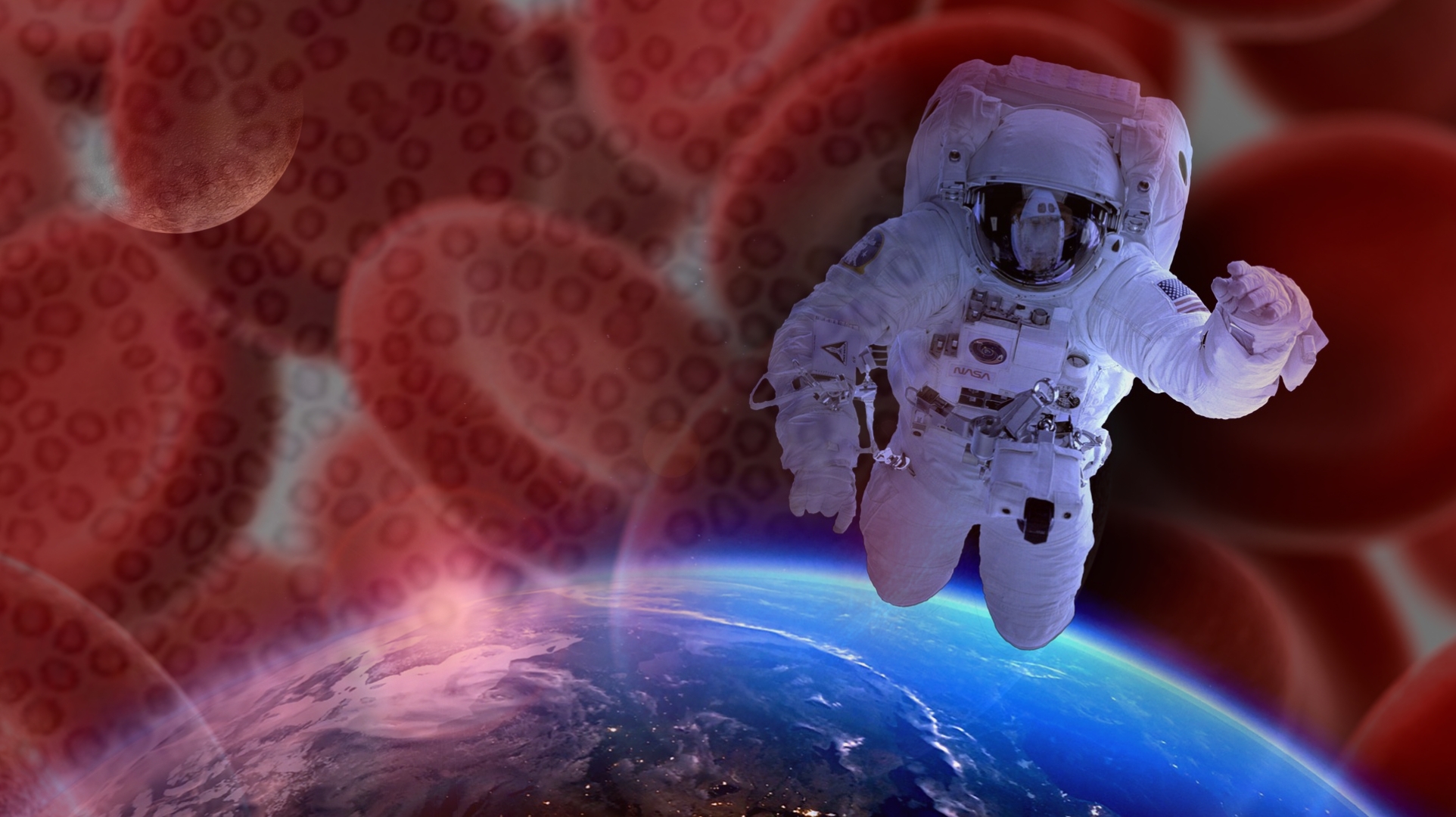The Mystery of space anemia !
The Mystery of space anemia
| Related Question's |
|---|
| 1-Space anemia 2-What is anemia Symptoms of anemia? 3-What causes space anemia Thalassemia? What causes anemia Anaemia? 4-Anemia treatment Why do astronauts get anemia? 5-Why do astronauts lose blood in space? 6-What happens to human blood in space? 7-What does your blood look like in space? |
RBCs are destroyed rapidly in space.
Research :In space, red blood cells are destroyed more quickly
RBCs decrease 54 percent faster in space than on Earth
Earth is also being made. In such a situation, a cautionary study has come to the fore. This study uncovers for the first time how the number of red blood cells (RBCs) decreases more rapidly while in space. This condition is called space anemia.
According to the study published in the journal Nature Medicine, an analysis of 14 astronauts found that 54 percent more RBCs were lost in space than their body's loss of RBCs during their stay on Earth. .
Guy Tudell, a rehabilitation physician at The Ottawa Hospital at the University of Ottawa and lead author of the research, said space anemia has been reported in astronauts since their return to Earth from the first space mission. But we didn't know why this happened. Our study shows that more red blood cells are destroyed in space and this process continues throughout the mission. Prior to this study, space anemia was thought to be an accelerated adaptation to fluids transferred to the passenger's upper body upon arrival in space. In this sequence, 10 percent of the blood vessels of the astronauts lose fluid. It was also believed that to balance this, 10 percent of their RBCs are also destroyed and they return to normal in 10 days during their stay in space.
Cells are destroyed by the effect of space, not just by the shift of fluid. To reflect this, the team assessed RBCs during the six months of spaceflight of 14 astronauts. According to researchers, our body on Earth creates and destroys 2 million RBCs every second. They found that 54 percent, or three million more red blood cells per second, were lost in the passengers during their six months in space.
He says that it is fortunate that when in space, the reduction of red blood cells in a state of weightlessness does not become a problem. But when you are under the influence of gravity, then the effect of anemia is felt. • The team of Dr. Tudos found that if this is not the case, then the health of red blood can become a hindrance while completing the mission in space


Post a Comment